5 Myths about 7 BooksMARK SHEA
People don't talk much about the deuterocanon these days. The folks who do are mostly Christians, and they usually fall into two general groupings: Catholics — who usually don't know their Bibles very well and, therefore, don't know much about the deuterocanonical books, and Protestants — who may know their Bibles a bit better, though their Bibles don't have the deuterocanonical books in them anyway, so they don't know anything about them either. With the stage thus set for informed ecumenical dialogue, it's no wonder most people think the deuterocanon is some sort of particle weapon recently perfected by the Pentagon.
The deuterocanon (ie. "second canon") is a set of seven books — Sirach, Tobit, Wisdom, Judith, 1 and 2 Maccabees, and Baruch, as well as longer versions of Daniel and Esther — that are found in the Old Testament canon used by Catholics, but are not in the Old Testament canon used by Protestants, who typically refer to them by the mildly pejorative term "apocrypha." This group of books is called "deuterocanonical" not (as some imagine) because they are a "second rate" or inferior canon, but because their status as being part of the canon of Scripture was settled later in time than certain books that always and everywhere were regarded as Scripture, such as Genesis, Isaiah, and Psalms.
Why are Protestant Bibles missing these books? Protestants offer various explanations to explain why they reject the deuterocanonical books as Scripture. I call these explanations "myths" because they are either incorrect or simply inadequate reasons for rejecting these books of Scripture. Let's explore the five most common of these myths and see how to respond to them.
Myth 1The deuterocanonical books are not found in the Hebrew Bible. They were added by the Catholic Church at the Council of Trent after Luther rejected it.
The background to this theory goes like this: Jesus and the Apostles, being Jews, used the same Bible Jews use today. However, after they passed from the scene, muddled hierarchs started adding books to the Bible either out of ignorance or because such books helped back up various wacky Catholic traditions that were added to the gospel. In the 16th century, when the Reformation came along, the first Protestants, finally able to read their Bibles without ecclesial propaganda from Rome, noticed that the Jewish and Catholic Old Testaments differed, recognized this medieval addition for what it was and scraped it off the Word of God like so many barnacles off a diamond. Rome, ever ornery, reacted by officially adding the deuterocanonical books at the Council of Trent (1545-1563) and started telling Catholics "they had always been there."
This is a fine theory. The problem is that its basis in history is gossamer thin. As we'll see in a moment, accepting this myth leads to some remarkable dilemmas a little further on.
The problems with this theory are first, it relies on the incorrect notion that the modern Jewish Bible is identical to the Bible used by Jesus and the Apostles. This is false. In fact, the Old Testament was still very much in flux in the time of Christ and there was no fixed canon of Scripture in the apostolic period. Some people will tell you that there must have been since, they say, Jesus held people accountable to obey the Scriptures. But this is also untrue. For in fact, Jesus held people accountable to obey their conscience and therefore, to obey Scripture insofar as they were able to grasp what constituted "Scripture."
Consider the Sadducees. They only regarded the first five books of the Old Testament as inspired and canonical. The rest of the Old Testament was regarded by them in much the same way the deuterocanon is regarded by Protestant Christians today: nice, but not the inspired Word of God. This was precisely why the Sadducees argued with Jesus against the reality of the resurrection in Matthew 22:23-33: they couldn't see it in the five books of Moses and they did not regard the later books of Scripture which spoke of it explicitly (such as Isaiah and 2 Maccabees) to be inspired and canonical. Does Jesus say to them "You do greatly err, not knowing Isaiah and 2 Maccabees"? Does He bind them to acknowledge these books as canonical? No. He doesn't try to drag the Sadducees kicking and screaming into an expanded Old Testament. He simply holds the Sadducees accountable to take seriously the portion of Scripture they do acknowledge: that is, He argues for the resurrection based on the five books of the Law. But of course, this doesn't mean Jesus commits Himself to the Sadducees' whittled-down canon.
When addressing the Pharisees, another Jewish faction of the time, Jesus does the same thing. These Jews seem to have held to a canon resembling the modern Jewish canon, one far larger than that of the Sadducees but not as large as other Jewish collections of Scripture. That's why Christ and the Apostles didn't hesitate to argue with them from the books they acknowledged as Scripture. But as with the Sadducees, this doesn't imply that Christ or the Apostles limited the canon of Scripture only to what the Pharisees acknowledged.
When the Lord and His Apostles addressed Greek-speaking Diaspora Jews, they made use of an even bigger collection of Scripture — the Septuagint, a translation of the Hebrew Scriptures into Greek — which many Jews (the vast majority, in fact) regarded as inspired Scripture. In fact, we find that the New Testament is filled with references to the Septuagint (and its particular translation of various Old Testament passages) as Scripture. It's a strange irony that one of the favorite passages used in anti-Catholic polemics over the years is Mark 7:6-8. In this passage Christ condemns "teaching as doctrines human traditions." This verse has formed the basis for countless complaints against the Catholic Church for supposedly "adding" to Scripture man-made traditions, such as the "merely human works" of the deuterocanononical books. But few realize that in Mark 7:6-8 the Lord was quoting the version of Isaiah that is found only in the Septuagint version of the Old Testament.
But there's the rub: The Septuagint version of Scripture, from which Christ quoted, includes the Deuterocanonical books, books that were supposedly "added" by Rome in the 16th century. And this is by no means the only citation of the Septuagint in the New Testament. In fact, fully two thirds of the Old Testament passages that are quoted in the New Testament are from the Septuagint. So why aren't the deuterocanonical books in today's Jewish Bible, anyway? Because the Jews who formulated the modern Jewish canon were a) not interested in apostolic teaching and, b) driven by a very different set of concerns from those motivating the apostolic community.
In fact, it wasn't until the very end of the apostolic age that the Jews, seeking a new focal point for their religious practice in the wake of the destruction of the Temple, zeroed in with white hot intensity on Scripture and fixed their canon at the rabbinical gathering, known as the "Council of Javneh" (sometimes called "Jamnia"), about A.D. 90. Prior to this point in time there had never been any formal effort among the Jews to "define the canon" of Scripture. In fact, Scripture nowhere indicates that the Jews even had a conscious idea that the canon should be closed at some point. (toda's note; Council of Javneh could have been only a myth also)
The canon arrived at by the rabbis at Javneh was essentially the mid-sized canon of the Palestinian Pharisees, not the shorter one used by the Sadducees, who had been practically annihilated during the Jewish war with Rome. Nor was this new canon consistent with the Greek Septuagint version, which the rabbis regarded rather xenophobically as "too Gentile-tainted." Remember, these Palestinian rabbis were not in much of a mood for multiculturalism after the catastrophe they had suffered at the hands of Rome. Their people had been slaughtered by foreign invaders, the Temple defiled and destroyed, and the Jewish religion in Palestine was in shambles. So for these rabbis, the Greek Septuagint went by the board and the mid-sized Pharisaic canon was adopted. Eventually this version was adopted by the vast majority of Jews — though not all. Even today Ethiopian Jews still use the Septuagint version, not the shorter Palestinian canon settled upon by the rabbis at Javneh. In other words, the Old Testament canon recognized by Ethiopian Jews is identical to the Catholic Old Testament, including the seven deuterocanonical books (cf. Encyclopedia Judaica, vol. 6, p. 1147).
But remember that by the time the Jewish council of Javneh rolled around, the Catholic Church had been in existence and using the Septuagint Scriptures in its teaching, preaching, and worship for nearly 60 years, just as the Apostles themselves had done. So the Church hardly felt the obligation to conform to the wishes of the rabbis in excluding the deuterocanonical books any more than they felt obliged to follow the rabbis in rejecting the New Testament writings. The fact is that after the birth of the Church on the day of Pentecost, the rabbis no longer had authority from God to settle such issues. That authority, including the authority to define the canon of Scripture, had been given to Christ's Church.
Thus, Church and synagogue went their separate ways, not in the Middle Ages or the 16th century, but in the 1st century. The Septuagint, complete with the deuterocanononical books, was first embraced, not by the Council of Trent, but by Jesus of Nazareth and his Apostles.
Myth 2Christ and the Apostles frequently quoted Old Testament Scripture as their authority, but they never quoted from the deuterocanonical books, nor did they even mention them. Clearly, if these books were part of Scripture, the Lord would have cited them.
This myth rests on two fallacies. The first is the "Quotation Equals Canonicity" myth. It assumes that if a book is quoted or alluded to by the Apostles or Christ, it is ipso facto shown to be part of the Old Testament. Conversely, if a given book is not quoted, it must not be canonical.
This argument fails for two reasons. First, numerous non-canonical books are quoted in the New Testament. These include the Book of Enoch and the Assumption of Moses (quoted by St. Jude), the Ascension of Isaiah (alluded to in Hebrews 11:37), and the writings of the pagan poets Epimenides, Aratus, and Menander (quoted by St. Paul in Acts, 1 Corinthians, and Titus). If quotation equals canonicity, then why aren't these writings in the canon of the Old Testament?
Second, if quotation equals canonicity, then there are numerous books of the protocanonical Old Testament which would have to be excluded. This would include the Song of Songs, Ecclesiastes, Esther, Obadiah, Zephaniah, Judges, 1 Chronicles, Ezra, Nehemiah, Lamentations and Nahum. Not one of these Old Testament books is ever quoted or alluded to by Christ or the Apostles in the New Testament.
The other fallacy behind Myth #2 is that, far from being ignored in the New Testament (like Ecclesiastes, Esther, and 1 Chronicles) the deuterocanonical books are indeed quoted and alluded to in the New Testament. For instance, Wisdom 2:12-20, reads in part, "For if the just one be the son of God, he will defend him and deliver him from the hand of his foes. With revilement and torture let us put him to the test that we may have proof of his gentleness and try his patience. Let us condemn him to a shameful death; for according to his own words, God will take care of him."
This passage was clearly in the minds of the Synoptic Gospel writers in their accounts of the Crucifixion: "He saved others; he cannot save himself. So he is the king of Israel! Let him come down from the cross now, and we will believe in him. He trusted in God; let Him deliver him now if he wants him. For he said, ÔI am the Son of God'" (cf. Matthew 27:42-43).
Similarly, St. Paul alludes clearly to Wisdom chapters 12 and 13 in Romans 1:19-25. Hebrews 11:35 refers unmistakably to 2 Maccabees 7. And more than once, Christ Himself drew on the text of Sirach 27:6, which reads: "The fruit of a tree shows the care it has had; so too does a man's speech disclose the bent of his mind." Notice too that the Lord and His Apostles observed the Jewish feast of Hanukkah (cf. John 10:22-36). But the divine establishment of this key feast day is recorded only in the deuterocanonical books of 1 and 2 Maccabees. It is nowhere discussed in any other book of the Old Testament. In light of this, consider the importance of Christ's words on the occasion of this feast: "Is it not written in your Law, ÔI have said you are gods'? If he called them Ôgods,' to whom the word of God came — and the Scripture cannot be broken — what about the One Whom the Father set apart as His very own and sent into the world?" Jesus, standing near the Temple during the feast of Hanukkah, speaks of His being "set apart," just as Judas Maccabeus "set apart" (ie. consecrated) the Temple in 1 Maccabees 4:36-59 and 2 Maccabees 10:1-8. In other words, our Lord made a connection that was unmistakable to His Jewish hearers by treating the Feast of Hanukkah and the account of it in the books of the Maccabees as an image or type of His own consecration by the Father. That is, He treats the Feast of Hanukkah from the so-called "apocryphal" books of 1 and 2 Maccabees exactly as He treats accounts of the manna (John 6:32-33; Exodus 16:4), the Bronze Serpent (John 3:14; Numbers 21:4-9), and Jacob's Ladder (John 1:51; Genesis 28:12) — as inspired, prophetic, scriptural images of Himself. We see this pattern throughout the New Testament. There is no distinction made by Christ or the Apostles between the deuterocanonical books and the rest of the Old Testament.
Myth 3The deuterocanonical books contain historical, geographical, and moral errors, so they can't be inspired Scripture.
This myth might be raised when it becomes clear that the allegation that the deuterocanonical books were "added" by the Catholic Church is fallacious. This myth is built on another attempt to distinguish between the deuterocanonical books and "true Scripture." Let's examine it.
First, from a certain perspective, there are "errors" in the deuterocanonical books. The book of Judith, for example, gets several points of history and geography wrong. Similarly Judith, that glorious daughter of Israel, lies her head off (well, actually, it's wicked King Holofernes' head that comes off). And the Angel Raphael appears under a false name to Tobit. How can Catholics explain that such "divinely inspired" books would endorse lying and get their facts wrong? The same way we deal with other incidents in Scripture where similar incidents of lying or "errors" happen.
Let's take the problem of alleged "factual errors" first. The Church teaches that to have an authentic understanding of Scripture we must have in mind what the author was actually trying to assert, the way he was trying to assert it, and what is incidental to that assertion.
For example, when Jesus begins the parable of the Prodigal Son saying, "There was once a man with two sons," He is not shown to be a bad historian when it is proven that the man with two sons He describes didn't actually exist. So too, when the prophet Nathan tells King David the story of the "rich man" who stole a "poor man's" ewe lamb and slaughtered it, Nathan is not a liar if he cannot produce the carcass or identify the two men in his story. In strict fact, there was no ewe lamb, no theft, and no rich and poor men. These details were used in a metaphor to rebuke King David for his adultery with Bathsheba. We know what Nathan was trying to say and the way he was trying to say it. Likewise, when the Gospels say the women came to the tomb at sunrise, there is no scientific error here. This is not the assertion of the Ptolemiac theory that the sun revolves around the earth. These and other examples which could be given are not "errors" because they're not truth claims about astronomy or historical events.
Similarly, both Judith and Tobit have a number of historical and geographical errors, not because they're presenting bad history and erroneous geography, but because they're first-rate pious stories that don't pretend to be remotely interested with teaching history or geography, any more than the Resurrection narratives in the Gospels are interested in astronomy. Indeed, the author of Tobit goes out of his way to make clear that his hero is fictional. He makes Tobit the uncle of Ahiqar, a figure in ancient Semitic folklore like "Jack the Giant Killer" or "Aladdin." Just as one wouldn't wave a medieval history textbook around and complain about a tale that begins "once upon a time when King Arthur ruled the land," so Catholics are not reading Tobit and Judith to get a history lesson.
Very well then, but what of the moral and theological "errors"? Judith lies. Raphael gives a false name. So they do. In the case of Judith lying to King Holofernes in order to save her people, we must recall that she was acting in light of Jewish understanding as it had developed until that time. This meant that she saw her deception as acceptable, even laudable, because she was eliminating a deadly foe of her people. By deceiving Holofernes as to her intentions and by asking the Lord to bless this tactic, she was not doing something alien to Jewish Scripture or Old Testament morality. Another biblical example of this type of lying is when the Hebrew midwives lied to Pharaoh about the birth of Moses. They lied and were justified in lying because Pharaoh did not have a right to the truth — if they told the truth, he would have killed Moses. If the book of Judith is to be excluded from the canon on this basis, so must Exodus.
With respect to Raphael, it's much more dubious that the author intended, or that his audience understood him to mean, "Angels lie. So should you." On the contrary, Tobit is a classic example of an "entertaining angels unaware" story (cf. Heb. 13:2). We know who Raphael is all along. When Tobit cried out to God for help, God immediately answered him by sending Raphael. But, as is often the case, God's deliverance was not noticed at first. Raphael introduced himself as "Azariah," which means "Yahweh helps," and then rattles off a string of supposed mutual relations, all with names meaning things like "Yahweh is merciful," "Yahweh gives," and "Yahweh hears." By this device, the author is saying (with a nudge and a wink), "Psst, audience. Get it?" And we, of course, do get it, particularly if we're reading the story in the original Hebrew. Indeed, by using the name "Yahweh helps," Raphael isn't so much "lying" about his real name as he is revealing the deepest truth about who God is and why God sent him to Tobit. It's that truth and not any fluff about history or geography or the fun using an alias that the author of Tobit aims to tell.
Myth 4The deuterocanonical books themselves deny that they are inspired Scripture.
Correction: Two of the deuterocanonical books seem to disclaim inspiration, and even that is a dicey proposition. The two in question are Sirach and 2 Maccabees. Sirach opens with a brief preface by the author's grandson saying, in part, that he is translating grandpa's book, that he thinks the book important and that, "You therefore are now invited to read it in a spirit of attentive good will, with indulgence for any apparent failure on our part, despite earnest efforts, in the interpretation of particular passages." Likewise, the editor of 2 Maccabees opens with comments about how tough it was to compose the book and closes with a sort of shrug saying, "I will bring my own story to an end here too. If it is well written and to the point, that is what I wanted; if it is poorly done and mediocre, that is the best I could do."
That, and that alone, is the basis for the myth that the deuterocanon (all seven books and not just these two) "denies that it is inspired Scripture." Several things can be said in response to this argument.
First, is it reasonable to think that these typically oriental expressions of humility really constitute anything besides a sort of gesture of politeness and the customary downplaying of one's own talents, something common among ancient writers in Middle Eastern cultures? No. For example, one may as well say that St. Paul's declaration of himself as "one born abnormally" or as being the "chief of sinners" (he mentions this in the present, not past tense) necessarily makes his writings worthless.
Second, speaking of St. Paul, we are confronted by even stronger and explicit examples of disclaimers regarding inspired status of his writings, yet no Protestant would feel compelled to exclude these Pauline writings from the New Testament canon. Consider his statement in 1 Corinthians 1:16 that he can't remember whom he baptized. Using the "It oughtta sound more like the Holy Spirit talking" criterion of biblical inspiration Protestants apply to the deuterocanonical books, St. Paul would fail the test here. Given this amazing criterion, are we to believe the Holy Spirit "forgot" whom St. Paul baptized, or did He inspire St. Paul to forget (1 Cor. 1:15)?
1 Corinthians 7:40 provides an ambiguous statement that could, according to the principles of this myth, be understood to mean that St. Paul wasn't sure that his teaching was inspired or not. Elsewhere St. Paul makes it clear that certain teachings he's passing along are "not I, but the Lord" speaking (1 Cor. 7:10), whereas in other cases, "I, not the Lord" am speaking (cf. 1 Cor. 7:12). This is a vastly more direct "disclaimer of inspiration" than the oblique deuterocanonical passages cited above, yet nobody argues that St. Paul's writings should be excluded from Scripture, as some say the whole of the deuterocanon should be excluded from the Old Testament, simply on the strength of these modest passages from Sirach and 2 Maccabees.
Why not? Because in St. Paul's case people recognize that a writer can be writing under inspiration even when he doesn't realize it and doesn't claim it, and that inspiration is not such a flat-footed affair as "direct dictation" by the Holy Spirit to the author. Indeed, we even recognize that the Spirit can inspire the writers to make true statements about themselves, such as when St. Paul tells the Corinthians he couldn't remember whom he had baptized.
To tweak the old proverb, "What's sauce for the apostolic goose is sauce for the deuterocanonical gander." The writers of the deuterocanonical books can tell the truth about themselves — that they think writing is tough, translating is hard, and that they are not sure they've done a terrific job — without such admissions calling into question the inspired status of what they wrote. This myth proves nothing other than the Catholic doctrine that the books of Sacred Scripture really were composed by human beings who remained fully human and free, even as they wrote under the direct inspiration of God.
Myth 5The early Church Fathers, such as St. Athanasius and St. Jerome (who translated the official Bible of the Catholic Church), rejected the deuterocanonical books as Scripture, and the Catholic Church added these books to the canon at the Council of Trent.
First, no Church Father is infallible. That charism is reserved uniquely to the pope, in an extraordinary sense and, in an ordinary sense, corporately to all the lawful bishops of the Catholic Church who are in full communion with the pope and are teaching definitively in an ecumenical council. Second, our understanding of doctrine develops. This means that doctrines which may not have been clearly defined sometimes get defined. A classic example of this is the doctrine of the Trinity, which wasn't defined until A.D. 325 at the Council of Nicaea, nearly 300 years after Christ's earthly ministry. In the intervening time, we can find a few Fathers writing before Nicaea who, in good faith, expressed theories about the nature of the Godhead that were rendered inadequate after Nicaea's definition. This doesn't make them heretics. It just means that Michael Jordan misses layups once in awhile. Likewise, the canon of Scripture, though it more or less assumed its present shape — which included the deuterocanonical books — by about A.D. 380, nonetheless wasn't dogmatically defined by the Church for another thousand years. In that thousand years, it was quite on the cards for believers to have some flexibility in how they regarded the canon. And this applies to the handful of Church Fathers and theologians who expressed reservations about the deuterocanon. Their private opinions about the deuterocanon were just that: private opinions.
And finally, this myth begins to disintegrate when you point out that the overwhelming majority of Church Fathers and other early Christian writers regarded the deuterocanonical books as having exactly the same inspired, scriptural status as the other Old Testament books. Just a few examples of this acceptance can be found in the Didache, The Epistle of Barnabas, the Council of Rome, the Council of Hippo, the Third Council of Carthage, the African Code, the Apostolic Constitutions, and the writings of Pope St. Clement I (Epistle to the Corinthians), St. Polycarp of Smyrna, St. Irenaeus of Lyons, St. Hippolytus, St. Cyprian of Carthage, , Pope St. Damasus I, the , St. Augustine, and Pope St. Innocent I.
But last and most interesting of all in this stellar lineup is a certain Father already mentioned: St. Jerome. In his later years St. Jerome did indeed accept the Deuter-ocanonical books of the Bible. In fact, he wound up strenuously defending their status as inspired Scripture, writing, "What sin have I committed if I followed the judgment of the churches? But he who brings charges against me for relating the objections that the Hebrews are wont to raise against the story of Susanna, the Son of the Three Children, and the story of Bel and the Dragon, which are not found in the Hebrew volume (ie. canon), proves that he is just a foolish sycophant. For I wasn't relating my own personal views, but rather the remarks that they [the Jews] are wont to make against us" (Against Rufinus 11:33 [A.D. 402]). In earlier correspondence with Pope Damasus, Jerome did not call the deuterocanonical books unscriptural, he simply said that Jews he knew did not regard them as canonical. But for himself, he acknowledged the authority of the Church in defining the canon. When Pope Damasus and the Councils of Carthage and Hippo included the deuterocanon in Scripture, that was good enough for St. Jerome. He "followed the judgment of the churches."
Martin Luther, however, did not. And this brings us to the "remarkable dilemmas" I referred to at the start of this article of trusting the Protestant Reformers' private opinions about the deuterocanon. The fact is, if we follow Luther in throwing out the deuterocanonical books despite the overwhelming evidence from history showing that we shouldn't (ie. the unbroken tradition of the Church and the teachings of councils and popes), we get much more than we bargained for.
For Luther also threw out a goodly chunk of the New Testament. Of James, for example, he said, "I do not regard it as the writing of an Apostle," because he believed it "is flatly against St. Paul and all the rest of Scripture in ascribing justification to works" (Preface to James' Epistle). Likewise, in other writings he underscores this rejection of James from the New Testament, calling it "an epistle full of straw . . . for it has nothing of the nature of the gospel about it" (Preface to the New Testament).
But the Epistle of James wasn't the only casualty on Luther's hit list. He also axed from the canon Hebrews, Jude, and Revelation, consigning them to a quasi-canonical status. It was only by an accident of history that these books were not expelled by Protestantism from the New Testament as Sirach, Tobit, 1 and 2 Maccabees and the rest were expelled from the Old. In the same way, it is largely the ignorance of this sad history that drives many to reject the deuterocanonical books.
Unless, of course, we reject the myths and come to an awareness of what the canon of Scripture, including the deuterocanonical books, is really based on. The only basis we have for determining the canon of the Scripture is the authority of the Church Christ established, through whom the Scriptures came. As St. Jerome said, it is upon the basis of "the judgment of the churches" and no other that the canon of Scripture is known, since the Scriptures are simply the written portion of the Church's apostolic tradition. And the judgment of the churches is rendered throughout history as it was rendered in Acts 15 by means of a council of bishops in union with St. Peter. The books we have in our Bibles were accepted according to whether they did or did not measure up to standards based entirely on Sacred Tradition and the divinely delegated authority of the Body of Christ in council and in union with Peter.
The fact of the matter is that neither the Council of Trent nor the Council of Florence added a thing to the Old Testament canon. Rather, they simply accepted and formally ratified the ancient practice of the Apostles and early Christians by dogmatically defining a collection of Old Testament Scripture (including the deuterocanon) that had been there since before the time of Christ, used by our Lord and his apostles, inherited and assumed by the Fathers, formulated and reiterated by various councils and popes for centuries and read in the liturgy and prayer for 1500 years.
When certain people decided to snip some of this canon out in order to suit their theological opinions, the Church moved to prevent it by defining (both at Florence and Trent) that this very same canon was, in fact, the canon of the Church's Old Testament and always had been.
Far from adding the books to the authentic canon of Scripture, the Catholic Church simply did its best to keep people from subtracting books that belong there. That's no myth. That's history
http://www.catholiceducation.org/en/religi...ut-7-books.html 

 May 23 2017, 01:49 PM, updated 2y ago
May 23 2017, 01:49 PM, updated 2y ago
 Quote
Quote


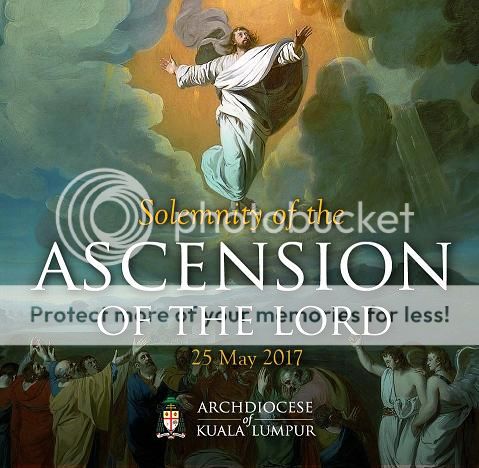

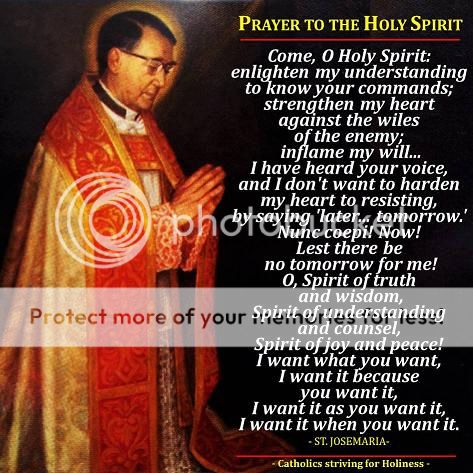
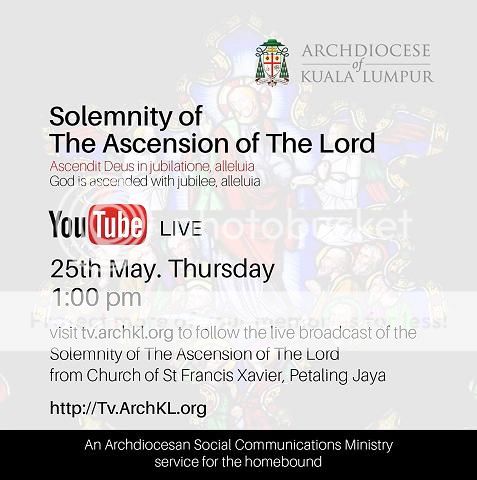


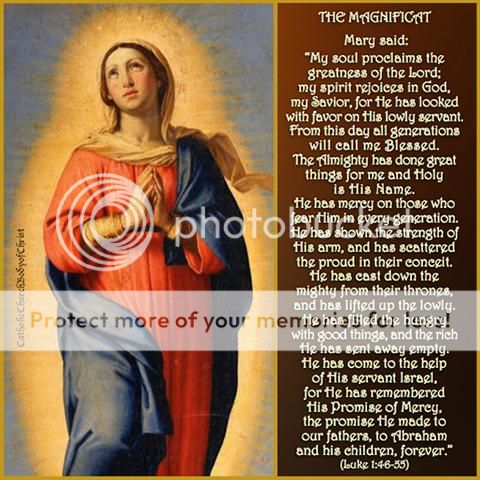

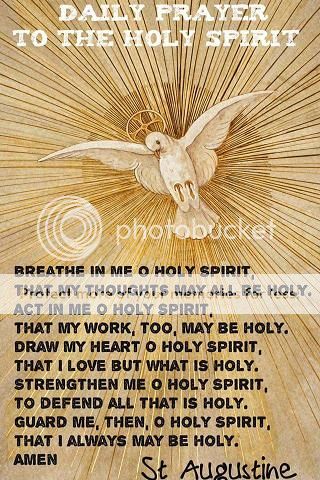


 0.0295sec
0.0295sec
 1.55
1.55
 6 queries
6 queries
 GZIP Disabled
GZIP Disabled